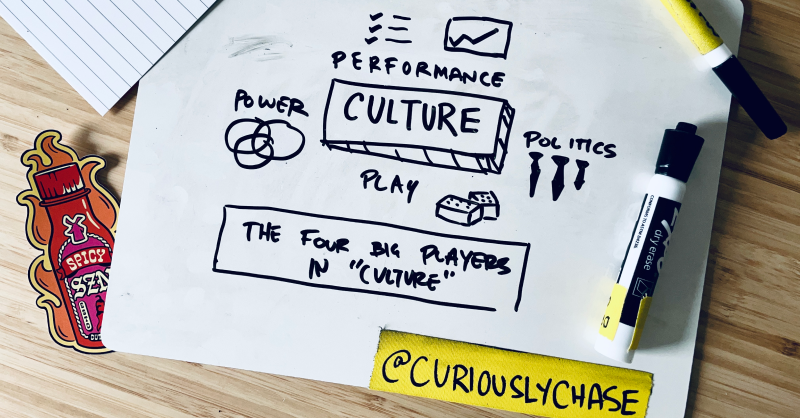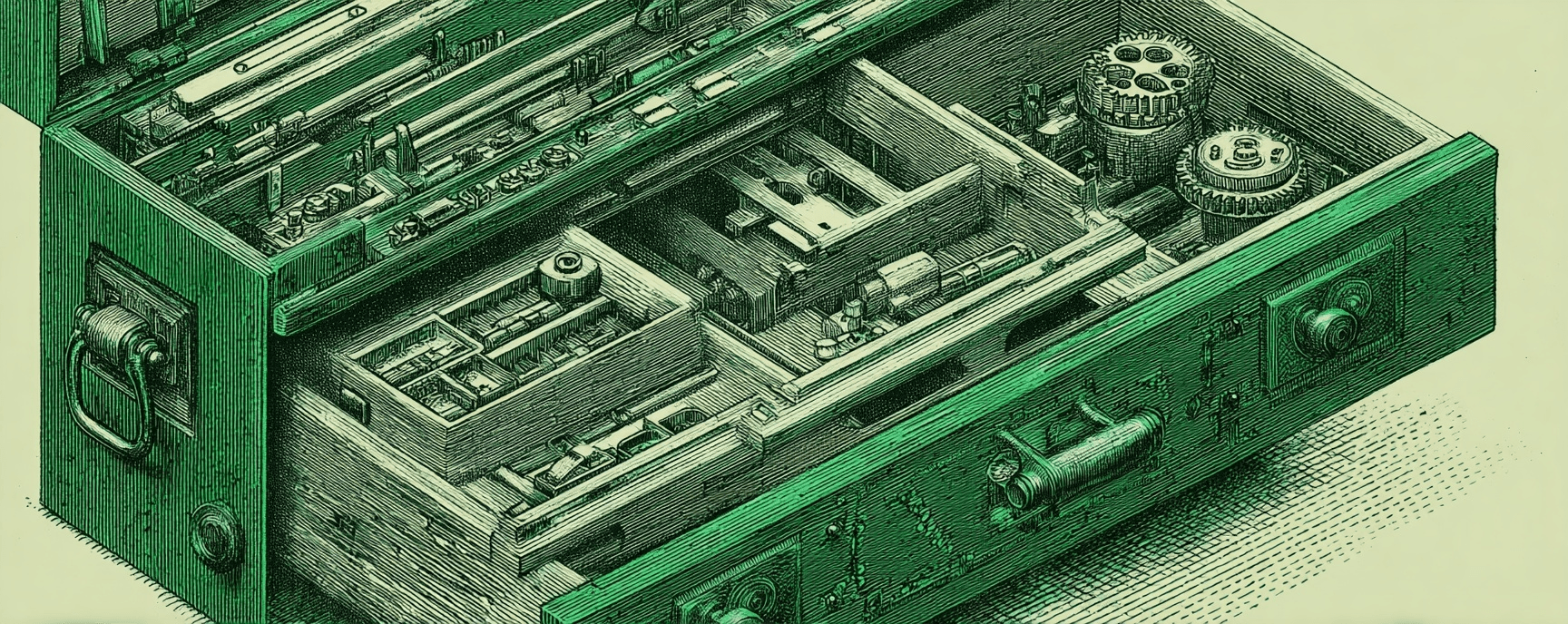Power, Performance, Politics, and Play - What Makes Culture
Essays and updates on product, engineering, and AI by Chase Adams.
3 minute read

But what exactly shapes this culture?
Let's take a deep dive into what I believe are the four key elements - power, performance, politics, and play - that contribute to the formation of an organization's culture. 🌟
Power: More Than Just Formal Authority
Power is often associated with formal authority, but it goes beyond that.
In an organization, different types of power can shape its culture.
A few examples of types of power in organizations:
- Expert power: Individuals with specialized knowledge or skills can influence decision-making and shape the culture of learning and development.
- Referent power: People with charisma and strong interpersonal skills can create an environment of trust and teamwork.
- Reward power: The ability to provide incentives or recognition can drive a culture of motivation and achievement.
- Coercive power: The use of threats or punishment to enforce compliance can foster a culture of fear and conformity.
By understanding the balance and interplay of these power dynamics, organizations can create an empowering and inclusive culture.
It’s important to recognize that power itself isn’t good or bad.
You can drive good outcomes by being able to recognize and use the types of power you hold.
Performance: Measuring What Matters
How an organization measures performance is a crucial part of its culture.
Metrics, goals, and evaluation processes shape the way people work, collaborate, and innovate.
Establishing a fair and transparent performance measurement system promotes a culture of accountability and continuous improvement.
When crafting performance metrics, consider:
- Aligning them with organizational values and priorities
- Encouraging collaboration instead of competition
- Recognizing effort and learning, not just outcomes
Politics: The Unavoidable Element
Like it or not, politics play a role in shaping organizational culture.
Office politics can manifest in various ways, such as favoritism, backstabbing, or power struggles.
These can create a toxic culture that stifles growth and collaboration.
To minimize the negative impact of politics, organizations should:
- Promote open communication and transparency
- Establish clear policies and procedures
- Encourage feedback and address concerns promptly
Play: The Key Indicator of a Healthy Culture
Play might seem like a surprising element, but a group's ability to play with ideas is a strong indicator of a healthy culture.
Organizations that encourage playfulness foster creativity, innovation, and adaptability.
Play can take different forms, such as brainstorming sessions, team-building activities, or simply giving employees the autonomy to experiment.
To cultivate a playful culture:
- Encourage curiosity and questioning
- Allow for calculated risks and learning from failure
- Create a safe space for open dialogue and idea-sharing
I have a series on embracing constraints for enhanced creativity in my newsletter and “how to incorporate play at work” is a common topic that I cover.
How Is Your Organization’s Culture?
Organizational culture is an intricate tapestry woven from various elements.
By understanding the roles of power, performance, politics, and play, organizations can shape their culture to be more inclusive, innovative, and resilient.
A well-crafted culture not only drives success but also creates a nurturing environment where people can thrive, grow, and achieve their full potential. 🌱💡
Reflection Exercise
As you reflect on the concepts of power, performance, politics, and play in your organization's culture, I'd love to hear your thoughts and experiences! Here are a few questions to get the conversation started:
- Can you share an example of how different types of power have influenced your organization's culture? 💪
- How does your organization measure performance, and what impact has it had on the culture? 📊
- Have you witnessed the effects of office politics on your organization's culture? What strategies have you seen used to minimize their negative impact? 🏢
- How does your organization foster playfulness and creativity? Do you have any fun or inspiring stories about how play has led to innovation in your workplace? 🎨
Feel free to share your insights, and let's learn from one another to create even better organizational cultures! 💬🚀
Build Your Website with AI—No Code Required
Learn to create and deploy professional websites using ChatGPT and Claude. Go from complete beginner to confident website builder.
